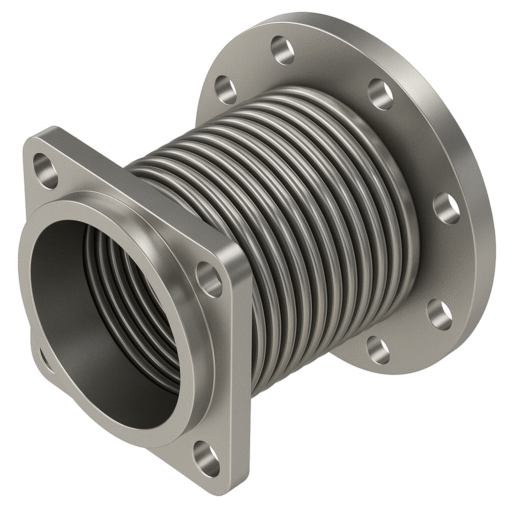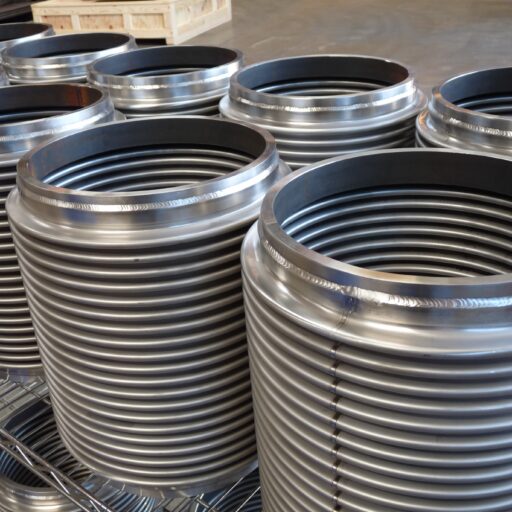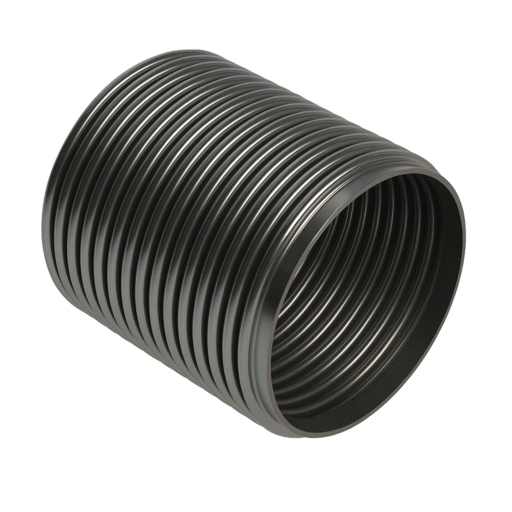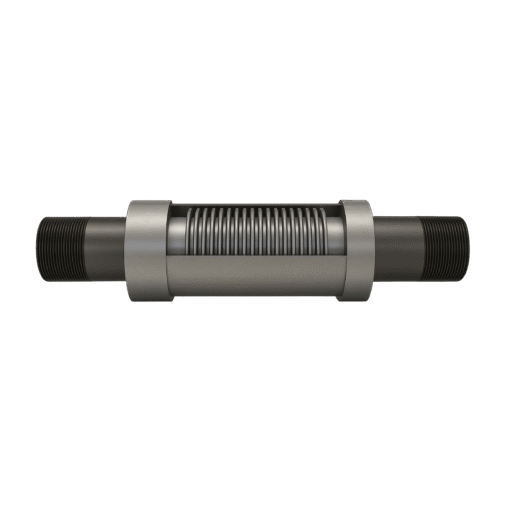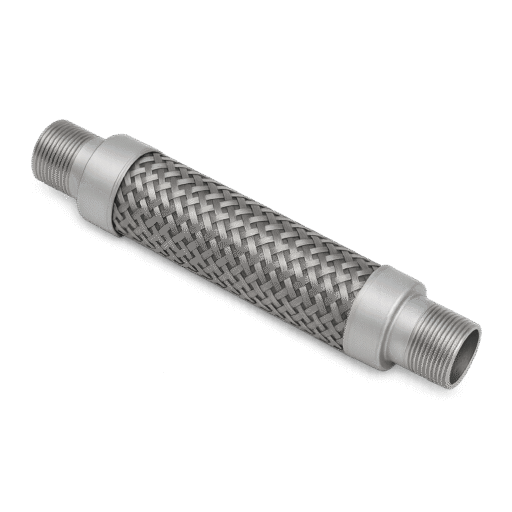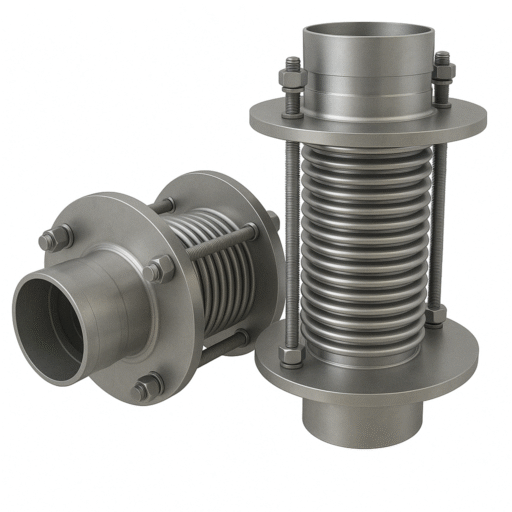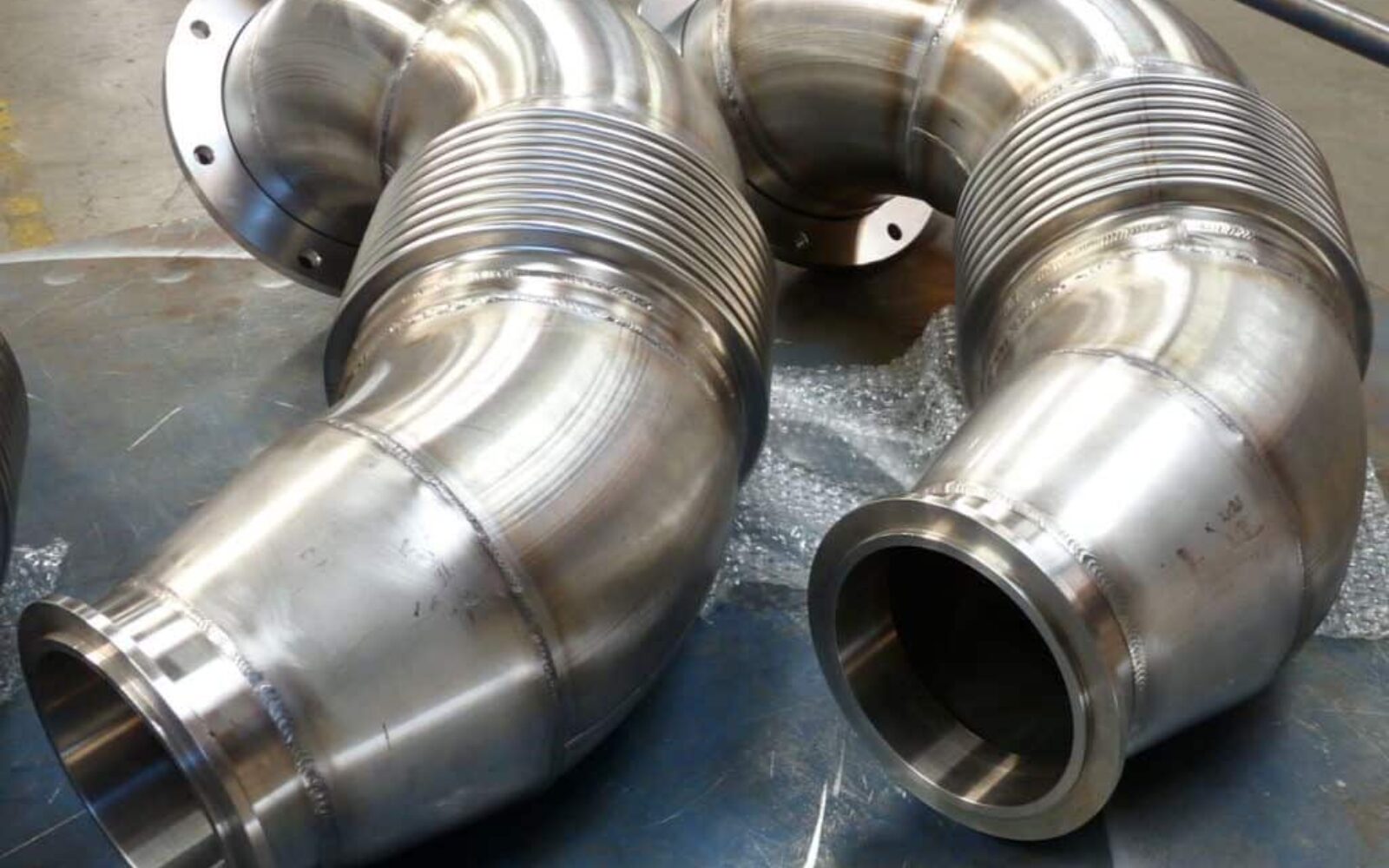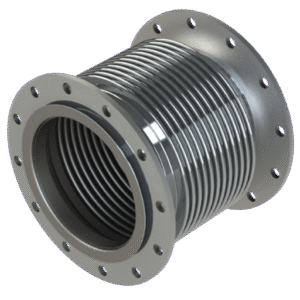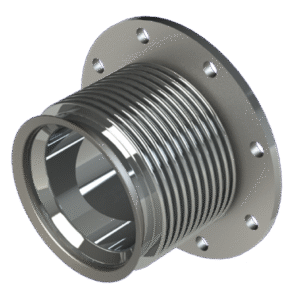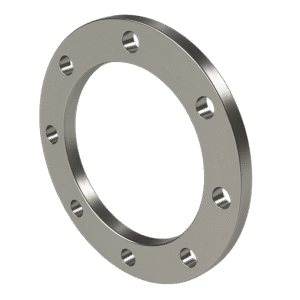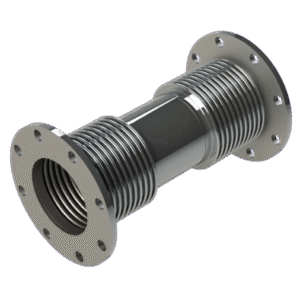Exhaust flex joints are kinds of metal bellows. A bellows is an object or device with concertinaed sides which allow the component to expand and contract. A custom bellows design requires special attention to 12 important qualities: stress modes, flexing, pressure differential, rigid stops, spring rate, life cycles, temperature extremes, exposure, assembly method, vibration, end configuration, and geometric constraints.
An exhaust flex joint is a flexible component for exhaust systems found in front-wheel-drive vehicles, and on most all-wheel-drive vehicles.
When you accelerate in a front-wheel-drive vehicle, the motor rocks back and forth due to the fact that they are mounted into the body in a transverse fashion. The flex pipe absorbs the shock and protects your exhaust system from breakage. Without that extra bit of shock absorption, the rocking motion can crack the exhaust system and create exhaust leaks.
Exhaust Flex Joint Failure
In the beginning stages of flex pipe failure you may hear a slight rumble when you start your vehicle. It may subside after the car has been allowed to run for a few minutes, so long as the leak is not a large one.
Exhaust flex joints wear over time and usually tend to fail from the inside. When this occurs, it is very noticeable. When an exhaust flex pipe fails, a car will sound as though it has no exhaust system. Exhaust flex pipe leaks can also be the result of the car bottoming out and tearing on a curb or driveway.
Signs of a Failed Flex Joint
It’s not always a simple task to detect a flex pipe exhaust leak. However, there are some sure-fire ways to tell if your exhaust flex pipe is leaking.
Loud Noises: One of the first signs of flex pipe failure is a loud rumbling noise. If there’s a crack in your flex joint, it will sound like you have an excessively noisy engine. The exhaust flex joint may also produce a hissing or tapping sound that gets louder the faster you go.
Unpleasant Odors: If you smell gasoline or exhaust fumes while driving your car, chances are that you have an exhaust leak. These toxic fumes can find their way into the cabin of your vehicle. If you inhale too many of these fumes, it can cause disorientation, loss of consciousness, and death.
Decreased Engine Efficiency: Exhaust leaks cause a lack of engine compression, which creates engine performance issues such as decreased power during acceleration, and decreased fuel efficiency.
Hanging Exhaust Pipe: If your exhaust pipe is hanging down from the undercarriage of your vehicle, chances are that you have an exhaust problem. This could be due to damage, or simply because of improper installation or maintenance. The important thing is to make sure you address the issue as quickly as possible to avoid any further issues that may arise as a result of an exhaust leak.

